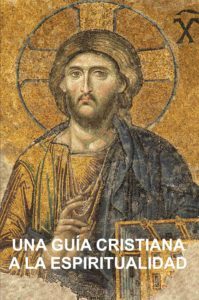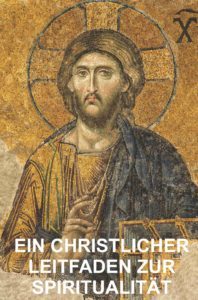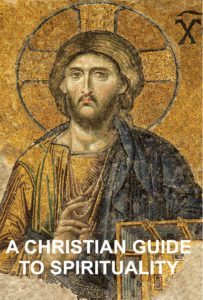Stephen W. Hiemstra's Blog, page 140
November 20, 2020
Why is Spirituality Important?
By Stephen W. Hiemstra
“Jesus said to him, ‘I am the way, and the truth, and the life.
No one comes to the Father except through me.’” (John 14:6 ESV)
Some questions defy pat answers: Who is God? Who am I? What must I do? How do I know?
African Runners
At one point in world competition among marathon runners, Ethiopians ruled. The Kenyans had talent, but Ethiopians trained harder and trained better. Training at high altitudes built their strength; training as a team built their competitiveness.
Africans were not always allowed to compete in these games. The right to compete did not come all at once, but it started with efforts to abolish slavery. William Wilberforce, a devout Christian, spent most of his life leading the effort to abolish slavery in nineteenth century Great Britain. He later wrote about the need for spiritual training saying:
no one expects to attain the height of learning, or arts, or power, or wealth, or military glory, without vigorous resolution, and strenuous diligence, and steady perseverance. Yet we expect to be Christians without labor, study, or inquiry. (Wilberforce 2006, 5–6)
Spiritual Journey
Wilberforce must have had me in mind. For years, I professed Christ as savior but did not embrace him as Lord. My faith was incomplete. As I learned to apply the lordship of Christ to my life, I experienced a more sustained sense of Christian joy.
The content of faith is critical. “Now faith is the assurance of things hoped for, the conviction of things not seen.” (Heb 11:1) If I have faith that eggshells are white, I have only defined eggshell color. But, if I have faith that Christ rose from the dead, my whole world changes—God exists and death no longer has the final word. The call to faith defines our identity in Christ.
Postmodern Dilemma
The idea of Christian faith has become unfashionable. The postmodern world we live in is often like the Sahara desert where mountains of sand blow about daily. Direction in a world of shifting sand requires a surveyor’s marker that establishes location. Standing on a marker, a map shows both direction and distance. Without the marker, however, a map becomes a puzzle—like words without definitions—whose pieces have meaning only relative to one another. Scripture is our map; our marker is Jesus Christ.
The sun does not always shine; neither does it rain every day. Spirituality is living out what we know to be true on good days and bad.
“Through the CALL of Jesus men become individuals. Whilly-nilly, they are compelled to decide, and that decision can only be made by themselves.” (Bonhoeffer 1995, 94).
Benner (2002, 26) sees the role of a spiritual director as of pointing to God’s work in a person’s life.
References
Benner, David G. 2203. Sacred Companions: The Gift of Spiritual Friendship & Direction. Downers Grove, IL: IVP Books.
Bonhoeffer, Dietrich. 1995. The Cost of Discipleship (Orig. pub. 1937). New York: Simon and Schuster.
Wilberforce, William. 2006. A Practical View of Christianity (Orig. pub. 1797). Ed. Kevin Charles Belmonte. Peabody, MA: Hendrickson Christian Classics; Hendrickson Publishers.
Why is Spirituality Important?
Also see:
Preface to A Christian Guide to Spirituality
Other ways to engage online:
Author site: http://www.StephenWHiemstra.net
Purchase Book: http://www.T2Pneuma.com
Newsletter: https://bit.ly/Thanks_2020
The post Why is Spirituality Important? appeared first on T2Pneuma.net.
¿Por qué Consideramos la Espiritualidad Importante?
 Por Stephen W. Hiemstra
Por Stephen W. HiemstraJesús le dijo : “Yo soy el camino, y la verdad, y la vida; nadie viene al Padre sino por mí.” (Juan 14:6)
Revisitamos unas prequeguntas muchas veces durante la vida: Quien es Dios? Quien somos nosotros? Que debemos hacer? ¿Cómo lo sabemos?
Antes pocos anos en la competencia global entre corredores de maratón, etíopes gobernaron.
Corredores keniatas tenían talento, pero los etíopes capacitados más fuerte y mejor preparados. Capacitación a gran altura construido fuerza; Capacitación como un equipo de unidad construyó competitividad.
Pero los africanos no siempre se les permitió competir en partidos internacionales. El derecho de competir no venia solo en un día, pero se empezar con la lucha contra la esclavitud.
William Wilberforce, un Cristiano devote, dedicaba casi la vida entera suya en la lucha por abolir la esclavitud durante la siglo XIX en Gran Bretaña.
Más tarde escribia sobre la necessidad de la formacíon espiritual, diciendo:
nadie espera que para alcanzar la altura de aprendizaje, o las artes, o el poder, ni la riqueza, ni gloria militar, sin resolución vigorosa, y la diligencia extenuante, y la perseverancia constante. Sin embargo, esperamos ser cristianos sin trabajo, estudio o investigación. (Wilberforce 2006, 5–6)
Wilberforce debe haber estar pensando de mí. Por muchos anos, yo habia profesado Cristo como Salvador, pero no como Señor. Mi fe estaba incompleto. Más tarde, cuando me enteré de aplicar la soberanía de Cristo en mi vida, comencé a experimentar el gozo sostenido cristiano.
El contento de fe es fundamental. “Ahora bien, la fe es la certeza de lo que se espera, la convicción de lo que no se ve.” (Heb 11:1 LBA) Si tengo fe que cáscaras de huevo son blanco, define solamente el colour de las cáscaras. Pero, si tengo fe en que Cristo resucitó de entre los muertos, mi perspectiva cambia por complete—Dios existe y la muerte no tiene la última palabra larga. El llamado de fe define nuestra identidad en Cristo.
La idea de fe Crista se ha convertido fuera de moda. El mundo posmoderno en que vivimos es a menudo como el desierto del Sahara, donde las montañas de arena golpe alrededor cotidiana. Direcciones en un mundio de arena cambiante requieren un marcador del topógrafo a determinar posición. De pie sobre marcador del topógrafo, la mapa mostrara direccion y del distancia. Sin el marcador, sin embargo, una mapa estaria ser una rompecabeza—como palabras sin definiciones—donde sus piezas tenian sentido solamente una contra la otra. Las escrituras es nuestro mapa; nuestro marcador del topógrafo es Jesuscristo.
El sol no brillo cotidiana; tampoco no lluvia cada dia. La espiritualidad es viviendo la verdad que sabemos por días buenos y días malos.
“Through the CALL of Jesus men become individuals. Whilly-nilly, they are compelled to decide, and that decision can only be made by themselves.” (Bonhoeffer 1995, 94).
Benner (2002, 26) vea el papel de un director espiritual como a apuntar al obra de Dios en la vida personal.
Referencias
Benner, David G. 2203. Sacred Companions: The Gift of Spiritual Friendship & Direction. Downers Grove, IL: IVP Books.
Bonhoeffer, Dietrich. 1995. The Cost of Discipleship (Orig. pub. 1937). New York: Simon and Schuster.
Wilberforce, William. 2006. A Practical View of Christianity (Orig. pub. 1797). Ed. Kevin Charles Belmonte. Peabody, MA: Hendrickson Christian Classics; Hendrickson Publishers.
¿Por qué Consideramos la Espiritualidad Importante
Ver también:
Prefacio de La Guía Cristiana a la Espiritualidad
Otras formas de participar en línea:
Sitio del autor: http://www.StephenWHiemstra.net
Comprar Libros: http://www.T2Pneuma.com
Boletín informativo: https://bit.ly/Thanks_2020
The post ¿Por qué Consideramos la Espiritualidad Importante? appeared first on T2Pneuma.net.
Warum ist Spiritualität Wichtig?

Von Stephen W. Hiemstra
Jesus spricht zu ihm: Ich bin der Weg und die Wahrheit und das Leben; niemand kommt zum Vater denn durch mich. (Jn 14:6)
Einige Fragen haben keine einfachen Antworten: Wer ist Gott? Wer sind wir? Was sollen wir machen? Wie wissen wir?
An einem Punkt im Weltwettbewerb unter Marathonläufern herrschten Äthiopier. Die Kenianer hatten Talent, aber die Äthiopier trainierten härter und besser. Die Ausbildung in großen Höhen stärkte die; Die Ausbildung als einer Mannschaft stärkte ihre Wettbewerbsfähigkeit.
Die Afrikaner durften nicht immer an diesen Spielen teilnehmen. Das Recht zu konkurrieren kam nicht auf einmal, aber es begann mit den Bemühungen, die Sklaverei abzuschaffen. William Wilberforce, ein frommer Christ, verbrachte den größten Teil seines Lebens als Leiter damit, die Sklaverei im Großbritannien des neunzehn Jahrhunderts abzuschaffen. Später schrieb er über die Notwendigkeit einer spirituellen Ausbildung und sagte:
Niemand erwartet, die Höhe des Verständnis oder der Künste oder der Macht oder des Reichtums oder des militärischen Ruhms zu erreichen, ohne stärke Entschlossenheit, anstrengenden Fleiß und beständige Ausdauer. Wir erwarten jedoch, Christen zu werden, ohne Arbeit, Studium, oder Forschung (Wilberforce 2006, 5–6).
1Wilberforce muss mich im Sinn gehabt haben. Ich habe mich jahrelang zu Christus als Retter bekannt, ihn aber nicht als Herrn angenommen. Mein Glaube war unvollständig
Als ich lernte, die Herrschaft Christi auf mein Leben anzuwenden, erlebte ich ein nachhaltigeres Gefühl christlicher Freude.
Der Inhalt des Glaubens ist kritisch. “Es ist aber der Glaube eine feste Zuversicht dessen, was man hofft, und ein Nichtzweifeln an dem, was man nicht sieht.” (Heb. 11:1) Wenn ich glaube, daß Eierschalen weiß sind, habe ich nur die Eierschalenfarbe definiert. Aber wenn ich glaube, daß Christus von den Toten auferstanden ist, verändert sich meine ganze Welt—Gott existiert und der Tod hat nicht mehr das letzte Wort. Der Ruf zum Glauben definiert unsere Identität in Christus (Bonhoeffer 1995, 94).
Die Idee des christlichen Glaubens ist unmodern geworden. Die postmoderne Welt, in der wir leben, ist oft wie die Sahara, in der täglich Sandberge rund wehen. Die Richtung in einer Welt mit sich bewegendem Sand erfordert einen Vermessungsmarker, der den Standort festlegt. Auf einer Markierung stehend zeigt eine Landkarte sowohl Richtung als auch Entfernung. Ohne den Marker wird eine Landkarte jedoch zu einem Puzzle—wie Wörter ohne Definitionen—deren Teile nur relativ zueinander eine Bedeutung haben. Die Schrift ist unsere Landkarte; unser Marker ist Jesus Christus (Benner 2002, 26).
Die Sonne scheint nicht immer; es regnet auch nicht jeden Tag. Die Spiritualität lebt das aus, von dem wir wissen, dass es an guten und an schlechten Tagen wahr ist.
Fußnoten
1 “no one expects to attain the height of learning, or arts, or power, or wealth, or military glory, without vigorous resolution, and strenuous diligence, and steady perseverance. Yet we expect to be Christians without labor, study, or inquiry.” (Wilberforce 2006, 5–6)
Verweise
Benner, David G. 2203. Sacred Companions: The Gift of Spiritual Friendship & Direction. Downers Grove, IL: IVP Books.
Bonhoeffer, Dietrich. 1995. The Cost of Discipleship (Orig. pub. 1937). New York: Simon and Schuster.
Wilberforce, William. 2006. A Practical View of Christianity (Orig. pub. 1797). Ed. Kevin Charles Belmonte. Peabody, MA: Hendrickson Christian Classics; Hendrickson Publishers.
Siehe auch:
Einleitung auf Ein Christlicher Leitfaden zur Spiritualität
Andere Möglichkeiten, sich online zu engagieren:
Autoren Seite: http://www.StephenWHiemstra.net
Herausgeber Seite: http://www.T2Pneuma.com
Mitteilungsblatt: https://bit.ly/Thanks_2020
The post Warum ist Spiritualität Wichtig? appeared first on T2Pneuma.net.
November 17, 2020
Friedman: Families Matter

Edwin H. Friedman. 1985. Generation to Generation: Family Process in Church and Synagogue. New York: Gilford Press [1].
Review by Stephen W. Hiemstra
Families matter more than normal (individualistic) intuition suggests. A death in the family may leave one person with chronic migraine headaches; another may develop back pain or experience a heart attack; a third may exhibit psychiatric dysfunction. A medical doctor or counselor treating only an individual’s symptoms may not have a high degree of success because the cause of the symptoms lies in the family system, not the individual. While pastors and chaplains may not be surprised by this observation, standard medical and counseling training and practices focuses almost exclusively on the individual.
Introduction
A relatively new field of counseling, family systems counseling, looks at the family as an emotional system. What matters in family systems is not so much individual behavior, but how individuals in the family interact with one another. Because any emotionally connected group—an office, business, or church—behaves in much the same way, family systems analysis has wide applicability. Edwin Friedman’s book, Generation to Generation: Family Process in Church and Synagogue, is probably the best known book in this field.
Five Concepts
Friedman outlines 5 basic concepts in family systems theory, including:
The identified patient;
The concept of balance (homeostasis);
Differentiation of self;
The extended family field; and
Emotional triangles (19).
Each of these concepts deserves discussion.
The Identified Patient
Symptoms arise in a family system first in the weakest members of the system. This unconscious scapegoating effect arises, in part, because they are least able to cope with problems elsewhere in the system like plumbing subject to excessive water pressure (21). For example, a child may act out (nail biting, bed-wetting, fighting in school, teenage troubles, etc) because the parents have marital difficulties. Focusing on the child may simply make the problem worse, while counseling the parents may not only resolve the marital difficulties, but the child’s issue as well.
Balance
The family emotional system strives to maintain equilibrium (resist change) having an effect not unlike a thermostat. When problems surface, questions according arise like: what is out of equilibrium? Why now? (24) Ironically, familiar dysfunction may be preferred to therapeutic change (25). Dynamic stability may accordingly be attained, in part, by how loosely or tightly individuals respond to changes. Friedman classifies families as acting more like a serial (tightly integrated) or parallel (loosely integrated) electrical system (25-26). Families that are loosely integrated exhibit a greater capacity to absorb stress simply because they are less reactive to the stress.
Differentiation of Self
According to Friedman: Differentiation means the capacity to be an “I” while remaining connected. Differentiation increases the shock-absorbing capacity of the system by loosening the integration. The ideal here is to remain engaged in the system but in an non-reactive manner—a nonanxious presence (27). Great self-differentiation offers the opportunity for the entire system to change by reducing the automatic resistance to change posed by homeostasis (29). Family leaders (including pastors in church families) who develop greater self-differentiation can accordingly bring healing in the face of challenges (30-31). This is a principle that can aid leaders in many a dysfunctional organization [2].
Extended Family Field
Understanding one’s extended family and family history can identify unresolved issues and repeating patterns. The principle is that one cannot solve a family system’s problem by withdrawing temporally or geographically—in such events we simply take our issues with us. Such problems have a nasty habit of reappearing kind of like genetic diseases transmitted by DNA. Friedman (32) observes that: family trees are always trees of knowledge and often they are also trees of life. This re-emergence of family systems problems across time and distance extends the principle of homeostasis.
Emotional Triangles
Friedman (35) writes: An emotional triangle is formed by any three persons or issues…when any two parts of a system become uncomfortable with one another, they will “triangle in” or focus on a third person, or issue, as a way of stabilizing their own relationship with one another. This has the effect of putting stress on that third person to balance the system. An unsuspecting pastor could, of course, end up participating in many such triangles and simply burn out. This leads Friedman to observe that: stress is less the result of quantitative notion such as “overwork” and more the effect of our position in the triangle of our families (1).
The importance of the pastor’s stance in a church family is immediately obvious in this framework. The pastor functions as a parent in the church family system. Problems in the pastor’s family of origin have the potential to transmit immediately into the church family because of the pastor’s key role in the system. Likewise, the pastor can also be easily triangled into families within the church family if the pastor is not a nonanxious presence within the system. Homeostasis can leave a new pastor vulnerable to dysfunction in a church years after the apparent source of the problem, perhaps a prior pastor, has left.
What is fascinating about this line of thought is that, unlike in theories of culture, much of this activity is subconscious—a kind of emotional twin to the thought processes involved in discussions of culture.
Family Therapy
Friedman wrote having worked as family therapist and ordained Jewish Rabbi for more than 30 years in the Washington DC metro area. He writes in 12 chapters divided into 4 sections preceded by an introduction and followed by a bibliographic and index. The chapter titles are:
The Idea of a Family;
Understanding Family Process;
The Marital Bond;
Child-focused Families;
Body and Soul in the Family Process;
When the Parent Becomes a Child;
A Family Approach to Life-Cycle Ceremonies;
Family Process and Organizational Life;
Leadership and Self in a Congregational Family;
Leaving and Entering a Congregational Family;
The Immediate Family: Conflict and Traps; and
The Extended Family: Its Potential for Salvation (ix-x).
Although Generation to Generation is a textbook, it is a fascinating read—Friedman is famous for his story-telling and he wrote another book, Friedman’s Fables (New York: Gilford Press, 2014), which focuses more explicitly on the stories.
Assessment
Applying Friedman’s principles in my own family life has brought enormous healing. My seminary training, for example, worked to increase my level of self-differentiation within my family which is very close (fused in Friedman’s terminology). This book is well worth the time and effort to read and study. The life you save may be your own.
[1] www.Guilford.com.
[2] An entire book has been focused on this same principle: Ronald A. Heifetz and Marty Linsky. 2002. Leadership on the Ling: Staying Alive through the Dangers of Leading. Boston: Harvard Business School Press.
Friedman: Families Matter
Also see:
Nouwen: Make Space for Self, Others, and God
Vanhoozer: How Do We Understand the Bible? Part 1
Books, Films, and Ministry
Other ways to engage online:
Author site: http://www.StephenWHiemstra.net
Publisher site: http://www.T2Pneuma.com
Newsletter: https://bit.ly/Thanks_2020
The post Friedman: Families Matter appeared first on T2Pneuma.net.
November 16, 2020
Spirituality: Monday Monologues (podcast) November 16, 2020
 Stephen W. Hiemstra 2020 (Ken Burtram Photography)
Stephen W. Hiemstra 2020 (Ken Burtram Photography)Stephen W. Hiemstra 2020 (Ken Burtram Photography)
By Stephen W. Hiemstra
This morning I will share a prayer and reflect on the Christian Spirituality. After listening, please click here to take a brief listener survey (10 questions).
To listen, click on this link.
Hear the words; Walk the steps; Experience the joy!
Spirituality: Monday Monologues (podcast) November 16, 2020
Also see:
Monday Monologue On March 26, 2018
Other ways to engage online:
Author site: http://www.StephenWHiemstra.net,
Publisher site: http://www.T2Pneuma.com.
Newsletter: https://bit.ly/Plow_2020
The post Spirituality: Monday Monologues (podcast) November 16, 2020 appeared first on T2Pneuma.net.
November 15, 2020
Believers’ Prayer

By Stephen W. Hiemstra
Heavenly Father,
I believe in Jesus Christ, the son of the living God, who died for our sins and was raised from the dead.
Come into my life, help me to renounce and grieve the sin in my life that separates me from God.
Cleanse me of this sin, renew your Holy Spirit within me so that I will not sin any further.
Bring saints and a faithful church into my life to keep me honest with myself and draw me closer to you. Break any chains that bind me to the past—be they pains or sorrows or grievous temptations, that I might freely welcome God, the Father, into my life, who through Christ Jesus can bridge any gap and heal any affliction, now and always.
In Jesus’ precious name, Amen.
Believers’ Prayer
Also see:
Believer’s Prayer
Other ways to engage online:
Author site: http://www.StephenWHiemstra.net
Publisher site: http://www.T2Pneuma.com
Newsletter: https://bit.ly/Plow_2020
The post Believers’ Prayer appeared first on T2Pneuma.net.
Oración del Creyente

Por Stephen W. Hiemstra
Padre de los cielos,
Creo en Jesucristo, el hijo del viviendo Dios, quien murió para nuestros pecados y fue resucitado de los muertos.
Entra en mi vida, ayude me a renunciar y llorar el pecado en mi vida lo que separa me de Dios.
Límpiame de este pecado, renueva tu Espíritu Santo dentro me hasta que no pecadare más.
Trae santos y una iglesia fiel a mi vida para ser honesto conmigo mismo y acercarme más a ti.
Rompe las cadenas que me atan al pasado, ya sean dolores, penas o tentaciones dolorosas, para que yo pueda acoger libremente a Dios, el Padre, en mi vida, que a través de Jesucristo puede cerrar cualquier brecha y sanar cualquier aflicción, ahora y siempre.
En el nombre preciosos de Jesucristo, Amén.
Oración del Creyente
Ver también:
Gospel as Divine Template
Otras formas de participar en línea:
Sitio del autor: http://www.StephenWHiemstra.net,
Sitio del editor: http://www.T2Pneuma.com.
Boletín informativo: https://bit.ly/Plow_2020
The post Oración del Creyente appeared first on T2Pneuma.net.
Glaubens Gebet

Von Stephen W. Hiemstra
Himmlischer Vater,
Ich glaube an Jesus Christus, der Sohn des lebendes Gott, wer für unsere Sünden starb und von den Toten auferweckt wurde.
Komm in mein Leben, hilf mir, die Sünde in meinem Leben, die mich von Gott trennt, aufzugeben und zu betrüben.
Reinige mich von dieser Sünde, erneuere deinen Heiligen Geist in mir, damit ich nicht weiter sündige.
Bring Heilige und eine treue Kirche in mein Leben, die mich ehrlich zu mir selbst halt und mich dir näher zieh. Brechen Sie alle Ketten, die mich an die Vergangenheit binden—seien es Schmerzen oder Sorgen oder schwere Versuchungen, damit ich Gott, den Vater, frei in mein Leben aufnehmen kann, der durch Christus Jesus jetzt und immer jede Lücke schließen und jedes Leiden heilen kann.
In geliebten Namen Jesu, Amen.
Glaubens Gebet
Siehe auch:
Preface to a Life in Tension
Andere Möglichkeiten, sich online zu engagieren:
Autoren Seite: http://www.StephenWHiemstra.net
Herausgeber Seite: http://www.T2Pneuma.com
Mitteilungsblatt: https://bit.ly/Plow_2020
The post Glaubens Gebet appeared first on T2Pneuma.net.
November 13, 2020
Preface to A Christian Guide to Spirituality

By Stephen W. Hiemstra
Spirituality is lived belief. When we pray, worship, or reach out to our neighbors, we live out our beliefs. Our beliefs structure our spirituality like skin stretched over the bones of our bodies. These beliefs start with faith in God the Father through Jesus Christ as revealed through the Holy Spirit in scripture, the church, and daily life. Our theology orders our beliefs. Without a coherent theology, we lose our identity in space and time having no map or compass to guide us on our way. In the end, we focus on ourselves, not God.
Spiritual Foundation
Christian spirituality accordingly starts with God, not with us. Like the woman Jesus cured of a spinal disfiguration, our only response can be to glorify God with songs of praise (Luke 13:13). We experience lasting Christian joy, not with recognizing Christ as savior, but with recognizing Christ as Lord. Spiritual disciplines and experiences are part of this spirituality, but they are not necessarily the focus (1 Cor 13:8).
This focus on what God has done begins in verse one of Genesis where God is pictured creating the heavens and the earth. What exactly have we done to deserve being created? Nothing. In fact, our first independent act was to sin. What exactly have we done to warrant forgiveness? Nothing. Christ died for our sins. The only meaningful response to these gifts of creation and salvation is praise.
Early Church
The early church interpreted and summarized God’s revelations in the biblical text and early creeds. It later developed the catechisms to summarize key church doctrines. The Heidelberg Catechism, Luther’s catechism, and the Catholic catechism focus on three key statements of faith: the Apostle’s Creed, the Lord’s Prayer, and the Ten Commandments (Chan 2006, 108). Not surprisingly, Sunday morning worship has for centuries focused on these three faith statements, often being memorized and put to music. The Heidelberg Catechism, for example, encourages a focus on worship and is itself divided into 52 sermon topics for weekly use.
The key spiritual discipline in the Christian faith naturally is Sunday morning worship. The worship service includes prayer, readings from scripture, the spoken word, the sacraments, music, statements of faith, and other expressions of faithful worship. In worship, music binds our hearts and minds.
Spiritual Practices
This worship experience is strengthened daily through personal devotions as well as devotions with our spouses, families, and other small groups. The original small group is the Trinity—Father, Son, and Holy Spirit—our template for healthy community. And when we take our spirituality into the work world, it too becomes an opportunity for worship.
Hear the words; walk the steps; experience the joy!
Reference
Chan, Simon. 2006. Liturgical Theology: The Church as a Worshiping Community. Downers Grove, IL: IVP Academic.
Thielicke, Helmut. 1962. A Little Exercise for Young Theologians. Grand Rapids, MI: Eerdmans.
Preface to A Christian Guide to Spirituality
Also see:
Preface to a Life in Tension
Other ways to engage online:
Author site: http://www.StephenWHiemstra.net
Publisher site: http://www.T2Pneuma.com
Newsletter: https://bit.ly/Plow_2020
The post Preface to A Christian Guide to Spirituality appeared first on T2Pneuma.net.
Prefacio de La Guía Cristiana a la Espiritualidad

Por Stephen W. Hiemstra
La espiritualidad es la creencia vivida. Cuando oramos, adoramos, o ayudamos a nuestros prójimos, vivimos lo que creemos. Nuestras creencias estructuran nuestra espiritualidad como la piel estirada sobre los huesos de nuestros cuerpos. Estas creencias empiezan con fe en Dios el Padre por medio de Jesucristo, tal como es revelado a través del Espíritu Santo en la Biblia, la iglesia y la vida diaria. Nuestra teología ordena nuestra creencia. Sin una teología coherente, perdemos nuestra identidad en el espacio y el tiempo sin tener un mapa ni una brújula que nos guié en nuestro camino. Al final, nos enfocamos en nosotros mismos, no en Dios.
La Espiritualidad Cimientas
Por esta razón la espiritualidad cristiana comienza con Dios, no con nosotros. Así como la mujer que Jesús curó de una deformación de la espina, nuestra única respuesta puede ser el glorificar a Dios con cantos de alabanza (Lc. 13:13). Esta es la razón por la cual se vive el gozo cristiano duradero, no es reconociendo a Cristo como salvador, sino reconociendo a Cristo como Señor. Las disciplinas y experiencias espirituales son parte de esta espiritualidad, pero no son necesariamente el enfoque principal (1 Cor. 13:8).
Este enfoque en lo que ha hecho Dios comienza en el versículo uno de Génesis donde Dios se presenta creando el cielo y la tierra. ¿Qué hemos hecho nosotros exactamente para merecer ser creados? Nada. De hecho, nuestro primer acto de independiencia fue el pecar. ¿Qué hemos hecho exactamente para merecer el perdón? Nada. Cristo murió por nuestros pecados. La única respuesta significativa a estos dones de creación y salvación es la alabanza.
La Iglesia Primativa
La iglesia primitiva interpretó y resumió las revelaciones de Dios en el texto bíblico y los credos. Los catecismos se desarrollaron más tarde para resumir las doctrinas claves de la iglesia. El Catecismo de Heidelberg, el Catecismo de Lutero, y el Catecismo Católico se enfocan en tres declaraciones claves de la fe: el Credo de los Apóstoles, el Padre Nuestro, y los Diez Mandamientos (Chan, 2006, 108). No nos debe sorprender que, por siglos, el culto de domingo se ha enfocado en estas tres declaraciones de fe y que fueron memorizadas y puestas en canción. El Catecismo de Heidelberg, por ejemplo, estimula un enfoque a la adoración y se divide en 52 temas para sermones para uso semanal.
La disciplina espiritual principal en la fe cristiana es naturalmente el culto de domingo por la mañana. El servicio de adoración incluye la oración, lectura de las escrituras, la palabra hablada, los sacramentos, y la música. Inclusio también son las declaraciones de fe y las otras expresiones de fiel adoración. En la adoración, la música conecta nuestros corazones y nuestras mentes.
La Disciplinas Espirituales
Esta experiencia de la adoración se fortalece diariamente a través de los devocionales personales, así como los devocionales con nuestras parejas, familias, y otros grupos pequeños. El grupo pequeño original es la Trinidad —el Padre, el Hijo, y el Espíritu Santo— nuestro modelo para una comunidad saludable. Y cuando llevamos nuestra espiritualidad al mundo secular, también se convierte en una oportunidad para adorar.
Mi oración es que este libro aliente a los lectores a entender la espiritualidad cristiana un poco mejor y, a la misma vez, nutra su caminar con el Señor. No existe tal cosa como calidad de tiempo con el Señor; sólo hay tiempo. El Dios Vivo nos habla de muchas maneras, pero especialmente a través de las escrituras y, después de haber iniciado un diálogo, espera nuestra respuesta (Thielicke 1962, 34).
Referencias
Chan, Simon. 2006. Liturgical Theology: The Church as a Worshiping Community. Downers Grove, IL: IVP Academic.
Thielicke, Helmut. 1962. A Little Exercise for Young Theologians. Grand Rapids, MI: Eerdmans.
La Espiritualidad Cristiana
Ver también:
Gospel as Divine Template
Otras formas de participar en línea:
Sitio del autor: http://www.StephenWHiemstra.net,
Sitio del editor: http://www.T2Pneuma.com.
Boletín informativo: https://bit.ly/Plow_2020
The post Prefacio de La Guía Cristiana a la Espiritualidad appeared first on T2Pneuma.net.



